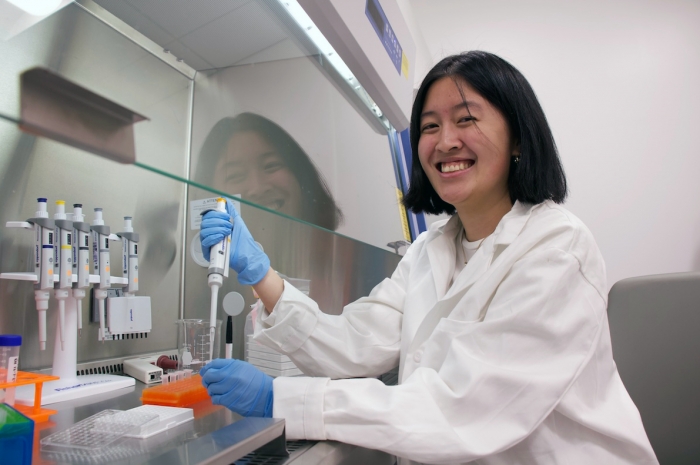 courtesy: University of Pennsylvania
courtesy: University of Pennsylvania
- Written by Moderator
Unlocking the brain: Peptide-guided nanoparticles deliver mRNA to neurons
FeaturedResearchers in the lab of Michael Mitchell in Penn Engineering have developed a method for delivering lipid nanoparticles across the blood-brain barrier specifically to targeted neurons.
University of Pennsylvania Engineers have modified lipid nanoparticles (LNPs)—the revolutionary technology behind the COVID-19 mRNA vaccines—to not only cross the blood-brain barrier (BBB) but also to target specific types of cells, including neurons. This breakthrough marks a significant step toward potential next-generation treatments for neurological diseases like Alzheimer’s and Parkinson’s. The researchers demonstrate how peptides—short strings of amino acids—can serve as precise targeting molecules, enabling LNPs to deliver mRNA specifically to the endothelial cells that line the blood vessels of the brain, as well as neurons.
The lab’s initial research “was like showing we could send a package from Pennsylvania to California, but we had no idea where in California it would end up,” says Michael J. Mitchell, associate professor in bioengineering and the paper’s senior author. “Now, with peptides, we can address the package to specific destinations with shared features, like every house with a red mailbox.”
The research results are published in this article.
Read the full article at UPenn News.
Visible Legacy Comment
This innovation from the University of Pennsylvania Mitchell lab implies more precise delivery of lipid nanoparticles in the body to control a disease and a more scalable manufacturing process. Industrial IP portfolio managers might explore the context of technologies and researchers in the Mitchell lab by using the Visible Legacy Navigator link below. You may find a portfolio license or a better fit to expedite your strategic needs.
Additional Info
-
Navigator:
 Explore the map in Navigator
Explore the map in Navigator - Widget:
- Caption: University of Pennsylvania Mitchell Lab
Related items
- The future of health care is in our cells
- Federal funding will help WSU professor develop technology to recover rare earth elements
- Scientists Get to the Bottom of COVID’s Worst Pediatric Complication
- WSU-inspired national gene-editing task force begins work
- Multi-Tasking Wearable Continuously Monitors Glucose, Alcohol, and Lactate
